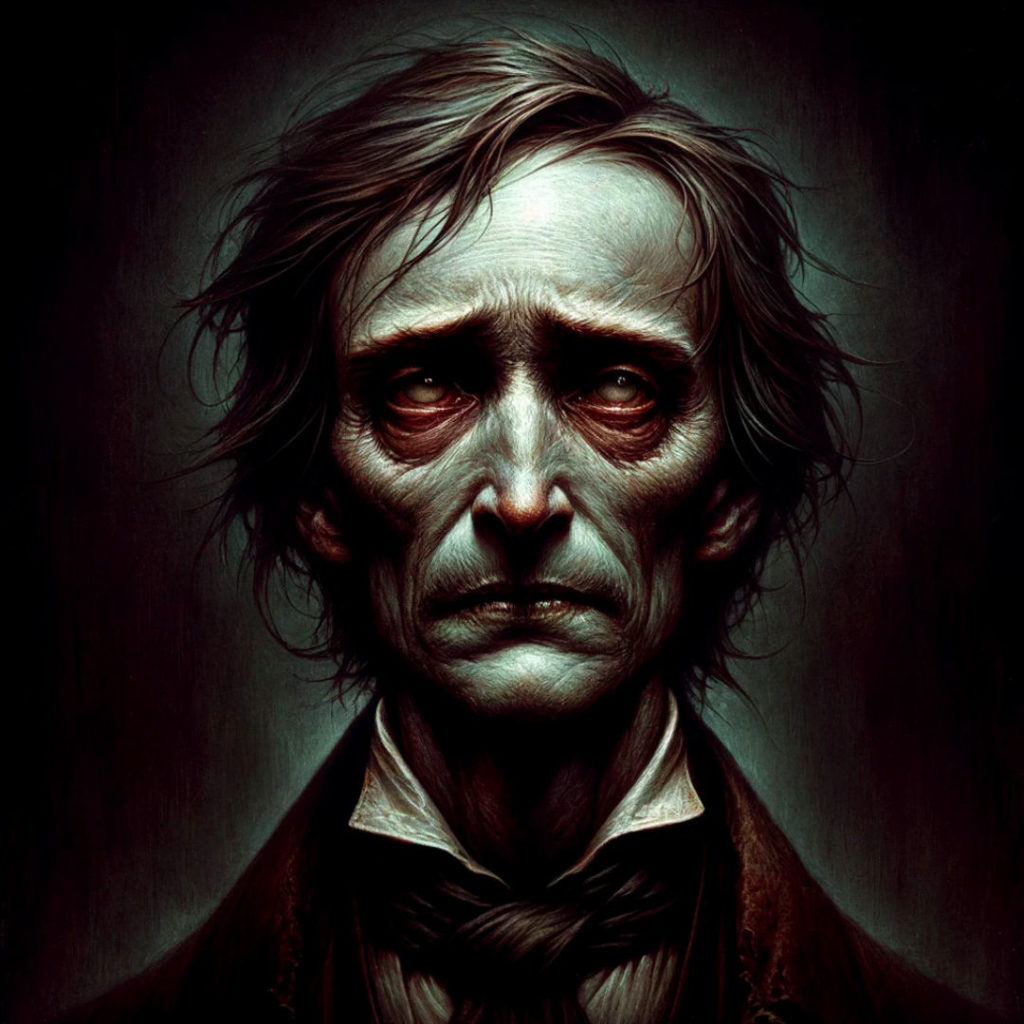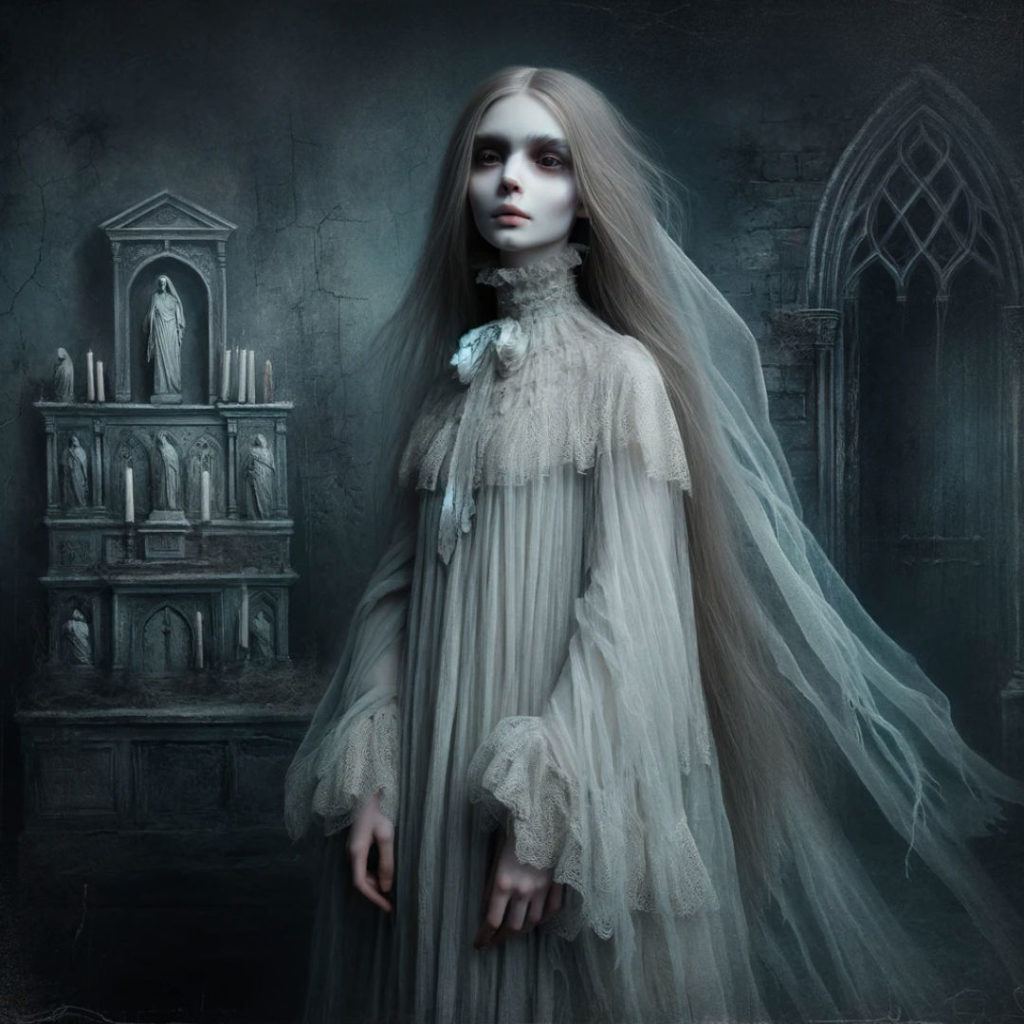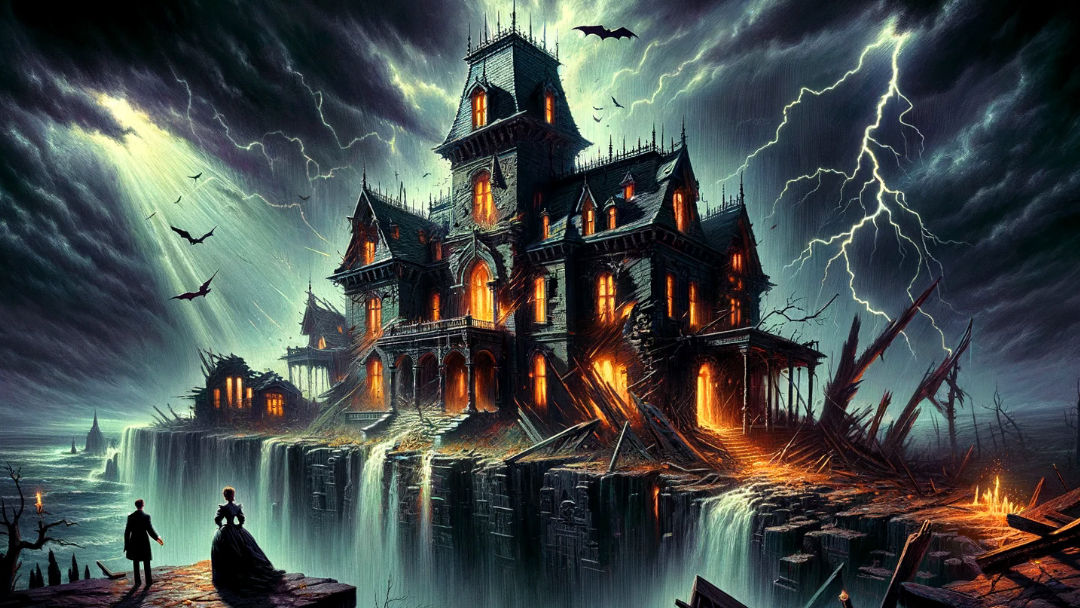Upon a dreary tract of our land, there lies a tale so entwined with the human soul’s darkest recesses, it has transcended the mere confines of its inception to resonate through ages. “The Fall of the House of Usher,” penned by the master of the macabre, Edgar Allan Poe, emerges not merely as a narrative but as an enduring testament to the gothic genre’s heart. In this reflection, let us traverse the shadowed corridors of the Usher abode, exploring its relevance to our contemporary epoch and its profound influence upon the arts and literature.
In the tale’s essence, our narrator embarks upon a visit to the ancient and decaying House of Usher, summoned by his childhood friend Roderick Usher, who suffers from an array of complex and inexplicable maladies. The mansion itself, a character as much as its inhabitants, mirrors the disintegration of both the Usher lineage and Roderick’s own psyche. Amidst this setting, Poe weaves a narrative rich with themes of fear, isolation, and the inevitable decay of both mind and matter, culminating in the literal and figurative collapse of the house and its last denizens.


The relevance of “The Fall of the House of Usher” in our modern context is manifold. At its core, the story delves into the terror of the unknown and the inevitability of death, themes that remain as pertinent to the human condition today as they were in Poe’s time. Moreover, the Usher family’s hereditary illness and the mansion’s oppressive atmosphere can be seen as allegories for the psychological struggles and societal pressures that plague contemporary society. The story’s exploration of these universal fears speaks to the timeless nature of Poe’s work, illustrating how the dread of what lies beyond our comprehension still captivates and terrifies.
The influence of “The Fall of the House of Usher” extends far beyond the literary world, infiltrating popular culture and inspiring myriad works across various mediums. One notable example is Alfred Hitchcock’s “Psycho” (1960), where the Bates Motel and Norman Bates’ tumultuous relationship with his mother echo the themes of isolation and familial decay present in Poe’s narrative. Similarly, the haunting ambiance and psychological depth of “Crimson Peak” (2015) by Guillermo del Toro owe much to the Gothic tradition that Poe so masterfully epitomized. In literature, Shirley Jackson’s “The Haunting of Hill House” (1959) mirrors the sentient nature of the Usher mansion, presenting the house itself as a character that reflects and amplifies the psychological distress of its inhabitants.
Moreover, the story’s impact resonates within the realm of music, inspiring artists and composers who seek to capture its eerie beauty and atmospheric dread. The band “The Alan Parsons Project” released a track titled “The Fall of the House of Usher,” which is part of their album “Tales of Mystery and Imagination” (1976), paying homage to Poe’s influence on the genre of progressive rock.
In the domain of visual arts, the story’s vivid imagery and themes of decay have inspired countless artists to explore the darker aspects of the human psyche and the transient nature of life itself. The crumbling edifice of the Usher house, a metaphor for the family’s genetic and psychological malaise, serves as a poignant reminder of the inevitable decay that awaits all earthly endeavors.
“The Fall of the House of Usher” stands not merely as a cornerstone of Gothic literature but as a timeless exploration of the fears that lurk within the human soul. Its relevance today lies in its ability to encapsulate the essence of our deepest anxieties and to remind us of the fragile boundary between sanity and madness, life and death. Through its enduring influence on literature, film, music, and art, Poe’s masterpiece continues to haunt our collective imagination, proving that the true terror lies not in the external world but within the dark recesses of our own minds. Let us then, dear reader, embrace the shadows cast by the House of Usher, for within them lies the unyielding power of the human spirit to confront the abyss and perhaps, find solace in the beauty of despair.

